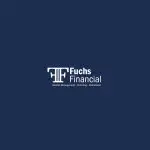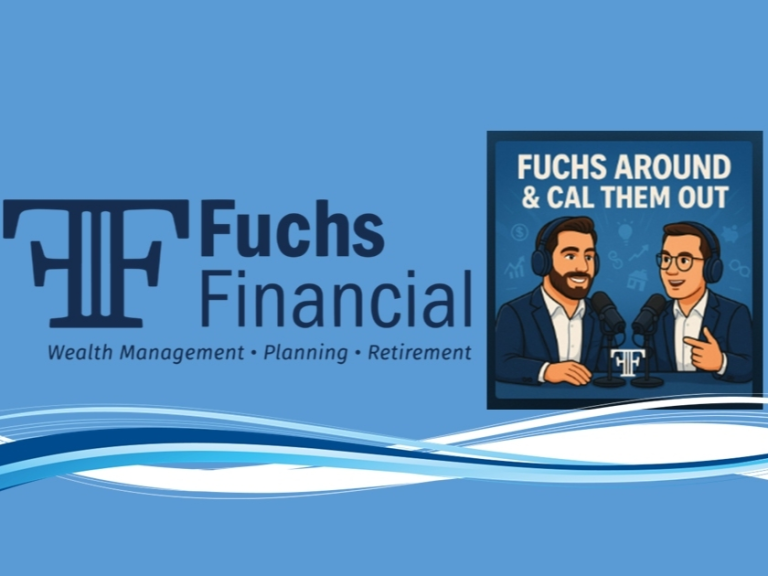The United States has more than 300,000 financial advisors. This makes it challenging to find the right person to guide you with your money decisions. Each advisor brings different expertise, charges different fees, and provides varying levels of service.
Your financial future depends on choosing the right advisor. That’s why you need to prepare specific questions before making any commitment. The best advisors today work more like therapists than number crunchers. They focus on understanding your goals and values first, then suggest investment strategies. You should also ask about their fiduciary status, how they communicate, and how they measure performance. These questions help you spot the difference between someone who just sells financial products and a true advisor who puts your interests first.
Financial advisory services keep changing as human expertise meets digital tools. Many advisors now blend computer-driven portfolio management with personal guidance. This piece lists seven key questions that will help you find the right financial advisor in 2025. These questions ensure you understand the costs, strategies, and complete services needed for your financial wellbeing.
What types of clients do you work with?
“What types of clients do you work with?” This question ranks among the most revealing ones you can ask a financial advisor at your first meeting. Many investors skip this basic question and miss key information about the advisor’s experience with similar situations.
Client type fit explanation
Financial advisors usually specialize based on client demographics, wealth levels, professions, or specific life situations. Recent industry data shows 79% of top-performing firms documented their ideal client personas in 2022. This shows how much successful advisors value specialization.
Advisors typically focus their client segments in several ways:
- Demographic specialization: Specific age groups (millennials, pre-retirees), family situations, or wealth brackets
- Professional focus: We worked with doctors, teachers, business owners, or executives with equity compensation
- Life transition expertise: Divorce, inheritance, retirement planning, or business succession
- Investment philosophy alignment: Clients who share similar values about money and risk
The best advisors know that trying to be “everything to every kind of client” makes them scramble between different strategies or offer generic service. They create client experiences for specific groups to boost both profits and client satisfaction.
Why this question matters
An advisor’s client specialization directly shapes the quality of advice you’ll get. Advisors who regularly work with similar clients develop deeper expertise in solving their unique challenges.
Advisors develop communication styles that work well with certain personality types. Some clients want high control (Dominators), others prefer collaboration, while some like to delegate decisions. You’ll have a smoother relationship if you find an advisor whose approach lines up with how involved you want to be.
This match goes beyond technical knowledge to philosophical fit. You might prefer value stocks while an advisor knows growth companies best, or you might care about socially responsible investing while they focus on returns. These differences don’t mean they’re a bad advisor, but you’ll need clear communication about investment decisions.
What to look for in their answer
Listen for these specific signs when the advisor talks about their client types:
Notice if they describe clients through problems they solve rather than just asset levels. Good advisors focus on common challenges within a group. “Doctors are high earners but start careers with substantial debt” shows better understanding than “we work with high-net-worth individuals”.
The advisor should state their value proposition for target clients clearly. The best ones can explain what makes them different and why clients choose them.
Check if they mention specialized team members or resources for needs outside their main expertise. No single advisor can master everything, so access to specialized knowledge matters.
See if their typical client profile matches your situation. Many advisors serve different clients, but their experience with similar cases leads to more relevant advice. Ask what percentage of their clients share your profession, life stage, or financial concerns.

Learn How To Maximize
Your
Retirement Savings
Retirement can be complicated. Discover how to make your savings last a lifetime—sign up for our free webinar today.
How often will we communicate and in what way?
Good communication builds the foundation of every successful advisor-client relationship. You should ask questions about how and when you’ll interact with your financial advisor right from the start.
Communication expectations
Your advisor should tell you how often they’ll contact you on day one. Recent studies show that nearly 80% of clients prefer hearing from their advisors at least quarterly. The number goes up to 47% for clients with over $500,000 in assets who want monthly updates.
Top advisors usually follow a clear communication schedule that has:
- Quarterly check-ins to review portfolios and financial updates
- Annual or semi-annual detailed financial plan reviews
- Quick updates during major market events
- Ready availability to answer urgent financial questions
You should discuss which communication methods suit you best. About 72% of clients like getting general updates through email, while 51% prefer phone calls to solve problems. On top of that, 38% of clients choose face-to-face meetings, and 36% are fine with virtual meetings.
Why it matters for your peace of mind
Regular communication boosts your confidence in your financial future. Research shows that 85% of high-value clients believe personalized, regular updates make them trust their advisor’s skills more.
Clients who rarely hear from their advisors feel less confident. Only 22% of clients with minimal advisor contact felt secure about their financial plans during possible economic downturns.
Communication quality directly links to client satisfaction. About 88% of people said an advisor’s communication style and frequency determined whether they’d recommend them to others. Also, 78% of clients mentioned that regular updates would keep them loyal to their current advisors.
Regular advisor contact gives you:
- Peace of mind when markets get rocky
- Better insight into your financial progress
- Chances to discuss new money concerns
- A stronger bond built on openness and trust
What to ask a financial advisor about availability
These questions will help you understand how potential financial advisors handle communication:
“What is your standard communication schedule?” Look for advisors who state their exact communication schedule instead of making vague promises about “outstanding service”.
“How fast do you usually respond to emails or calls?” Most clients want instant responses (within 10 minutes), but that’s not always possible. Knowing their target response time helps set realistic expectations.
“How do you handle urgent financial matters?” They should have clear plans for urgent issues, including emergency contact details.
“What information will I get in regular updates?” Good advisors share portfolio performance, market insights, and personal recommendations based on your situation.
“How do you adjust communications to match my needs?” Each client needs different communication styles, and advisors should adapt accordingly.
“Will you send updates during major market events?” Market volatility makes 54% of clients depend on their advisor’s timely market updates.
The key is finding an advisor whose communication style matches your priorities. As one expert puts it, “Research suggests that clients often leave financial advisors not because of losses, but because of lack of communication”. Setting clear expectations early creates an open, responsive relationship that helps build your financial confidence.
Are you a fiduciary and what does that mean for me?
“Are you a fiduciary?” stands out as the most crucial question you can ask a potential financial advisor. This simple question reveals if the professional sitting with you must legally put your interests first or can just suggest “suitable” products that might benefit them more than you.
Fiduciary duty explained
A fiduciary must act in the best interest of another person, legally speaking. Financial advisors with this role create a formal relationship where your financial wellbeing takes priority over their personal gain. Two main principles shape this obligation:
- Duty of care: Fiduciaries must make informed decisions by getting a full picture of your financial situation before suggesting anything
- Duty of loyalty: Fiduciaries can’t use their position to benefit themselves, like pushing products that pay them bigger commissions
The fiduciary duty creates stricter legal obligations than the looser “suitability standard” that applies to some financial professionals. Non-fiduciary advisors can suggest financial products that just meet the “suitable” mark, even if these products cost more or don’t perform as well as options that pay them less.
Why it matters for your financial goals
Your long-term financial success can change substantially based on whether you choose fiduciary or non-fiduciary advice. Without a fiduciary relationship, advisors might push investments or products with higher commissions instead of ones that best suit your needs.
These conflicts of interest lead to:
- Higher up-front fees on investments
- Products that don’t match your financial plans
- Much lower lifetime earnings and savings
Working with a fiduciary gives you peace of mind. You’ll know every recommendation helps your financial situation, not just the advisor’s income. Fiduciaries must tell you about possible conflicts of interest and stay away from them when they can.
Let’s look at what this means: A non-fiduciary advisor who knowingly sells you expensive, poor-performing investments leaves you with few legal options. But if a fiduciary advisor does this, you can take legal action because they broke their fiduciary duty.
How to verify fiduciary status
You need to ask directly and check independently to know if an advisor is a fiduciary. Here’s how to confirm their status:
Direct questions to ask:
- “Do you think of yourself as a fiduciary?”
- “Will you act as a fiduciary with a duty to work only for me?”
- “Can you put this commitment in writing?”
Look for these credentials and registrations that show fiduciary status:
- Registered Investment Advisor (RIA) – SEC or state-registered professionals who serve as fiduciaries
- Certified Financial Planner (CFP) – Professionals who follow strict standards including fiduciary duty
- Chartered Financial Analyst (CFA) – Experts bound by ethics code that creates fiduciary relationships
Check an advisor’s Form ADV on the SEC’s Investment Adviser Public Disclosure website to learn about possible conflicts and past issues. FINRA’s BrokerCheck or the CFP Board’s tool helps verify credentials.
The best advisors openly share their fiduciary status and gladly provide written proof of their commitment to putting your interests first.
What is your investment philosophy and approach?
A financial advisor’s investment philosophy shows you how they’ll manage your money over time. Their answer reveals core beliefs about markets, risk management, and their approach to your investments in good times and bad.
Investment philosophy overview
An investment philosophy guides how advisors make decisions about investing. It works as a roadmap that helps them make consistent, smart choices that line up with financial goals and risk tolerance. The philosophy has beliefs about market behavior, investment strategies, and risk management.
Most advisors use one of these common approaches:
- Market Capitalization Approach: You invest in assets with different market caps. The mix between stocks and bonds changes based on your risk comfort (e.g., 80% stocks/20% bonds for younger investors, or 60%/40% for those closer to retirement)
- Lifestyle Immunization: This strategy preserves capital by matching investment cash flows with your spending needs. Pension funding strategies inspired this approach
- Risk Parity: The portfolio keeps balanced risk across stocks, bonds, currencies, and inflation assets like commodities. This generates returns that hold up in different economic conditions
- Valuation Driven: This active, long-term strategy tries to beat passive measures by “buying low and selling high.” Advisors buy investments below fair value and sell when prices rise too high
Good advisors build their investment philosophies on academic research and proven principles instead of short-term market shifts or predictions. In fact, “A solid investment strategy does not rely on short-term predictions or market movements, but rather on research into the long-term behavior of capital markets”.
Why alignment is important
Your values need to match your advisor’s investment philosophy for long-term success. One expert says, “You have to believe in what they’re doing to stick with it”. This matters most during market downturns when advisors must help you stay the course instead of selling at market bottoms.
Different philosophies don’t mean a bad advisor, as long as they communicate clearly about investment decisions. To name just one example, see how you might prefer value stocks while your advisor excels with growth companies, or you value social responsibility while they focus on returns.
Things to ask a financial advisor about risk
Ask these specific questions about risk:
- “How do you define and measure risk in a portfolio?” Learn how they review different risks (market, inflation, longevity) beyond standard deviation.
- “How do you determine my risk capacity versus risk tolerance?” Risk capacity shows how much risk you can afford based on income, assets, savings, and spending. Risk tolerance reflects your comfort with market changes.
- “What diversification strategies do you employ?” Portfolios should spread across asset classes, geographies, and industries to lower risk. Ask about their international investment approach.
- “How do you adjust strategies during market volatility?” Quality advisors offer a steady, thoughtful approach while keeping long-term goals in focus.
- “Can you explain how you’ve helped clients guide through recent market downturns?” Their answer shows their practical risk management skills during real challenges.
The best investment strategy helps investors reach their destination. Your advisor should direct your investment strategy to match your goals, helping you achieve long-term success while resting easy at night.
How do you get paid and what are the total costs?
The cost of a financial advisor’s services often gets overlooked during the selection process. A client who knows the right questions about fees can save thousands of dollars throughout their investment journey.
Fee structures explained
Financial advisors use five payment structures, and each one affects your finances differently:
Assets Under Management (AUM): Most advisors charge a percentage of your invested assets.
- Traditional advisors: 0.5%-2% annually
- Robo-advisors: 0.25%-1% annually
- To cite an instance, see how a $500,000 portfolio costs between $2,500-$10,000 per year with a traditional advisor
Hourly Fees: The advisor bills you based on time spent on your financial needs.
- Typical range: $120-$300 per hour
- Average hourly rate in 2024: $268
Fixed/Flat Fees: You pay once for specific services.
- Financial plan creation: $1,000-$3,000
- Average per-plan fee: $2,554 (2024)
Retainer Fees: You make regular payments to receive ongoing service.
- Annual retainers: $2,000-$7,500
- Average annual retainer: $4,484 (2024)
Commission-Based: The advisor receives payment from your investment purchases.
- Typically 3%-6% of investment transactions
- Insurance products might pay double-digits at first with up to 5% annually while active
Advisors often mix these structures. Fee-only advisors get paid exclusively by clients, while fee-based advisors collect both client fees and third-party commissions.
Why transparency is key
Clear fee structures are the foundations of trust between advisors and clients. We needed to understand the complete cost structure to make smart decisions based on our financial situation.
Fee transparency helps spot conflicts of interest. An advisor earning commissions might recommend products that benefit their bottom line rather than yours.
Recent regulations have altered the map. The SEC’s Regulation Best Interest now requires detailed disclosures about compensation and conflicts. This protects investors from hidden costs.
Unclear or hidden fees create several problems:
- Comparing different advisors becomes challenging
- Investment returns suffer from surprise costs
- You can’t tell if recommendations serve your interests
- The value proposition becomes unclear
What to look for in fee disclosures
These specific documents help verify an advisor’s fee structure:
Form ADV Part II (Brochure): This SEC-required document shows:
- Payment timing and methods for advisory fees
- How fees get calculated
- Whether you can negotiate fees
- Extra compensation your advisor receives
Client Agreement: This contract details:
- Your exact fee rates
- What each fee covers
- How often you’ll be billed
- Whether you pay before or after services
Form CRS: This straightforward document explains:
- Fee arrangements
- Disciplinary history
- Possible conflicts of interest
Review these documents and ask direct questions:
- “Could you show me the total fees in actual dollars?”
- “What’s the cost breakdown for each service?”
- “Can we negotiate these fees?”
- “How will these fees affect my investment growth over time?”
- “Do you earn commissions from your recommendations?”
The total cost of advisory services goes beyond the basic percentage. The average advisor charges 1.02% for AUM, but total expenses including underlying investments usually range from 1.5%-2.5% each year.
What benchmarks do you use to measure success?
Standards help measure investment performance, yet clients rarely ask their financial advisors about measurement methods. Your advisor’s way of gaging success shows you their approach to managing your money.
Understanding investment benchmarks
Investment standards are measures that help track portfolio performance against market segments. These standards work as reference points to show if your investments meet expectations.
Common standards include:
- S&P 500 for U.S. large-cap stocks
- Russell 2000 for small-cap U.S. stocks
- Bloomberg U.S. Aggregate Bond Index for fixed-income portfolios
- MSCI All Country World Index for global investments
Quality advisors pick standards that match your portfolio’s makeup and investment strategy. Many investors make the mistake of comparing their diverse portfolios to the S&P 500. This comparison falls short when investments include bonds, international stocks, or alternative assets.
Why benchmarks matter
The right standards tell you if your advisor manages your money well. You can’t judge the value of your advisor’s fees without proper comparison metrics.
Standards reveal more than just performance:
- Whether market conditions or poor investment choices cause underperformance
- Your advisor’s risk levels in pursuit of returns
- Your portfolio’s performance versus index returns after fees
Beating standards isn’t always the main goal. Your retirement planning success might depend more on meeting income needs than outperforming a specific index.
How to interpret performance reports
Ask these questions when you review performance reports:
- “Which benchmarks do you use for different portions of my portfolio and why?”
- “How frequently do you measure performance against these benchmarks?”
- “What constitutes acceptable performance for you?”
- “Do your reports show net or gross returns?”
- “Besides benchmarks, how do you measure progress toward my specific financial goals?”
Standards offer one way to measure success. Your progress toward personal goals often matters more than market comparisons.
What services do you offer beyond investment advice?
The best financial advisors do more than manage your portfolio. They provide a range of services that give you a complete financial picture. You should ask about their full service menu during interviews to see if they match your needs.
Overview of additional services
Most financial advisors deliver detailed services that go way beyond simple investment advice:
- Retirement planning – Developing strategies for accumulating wealth, creating sustainable withdrawal plans, and maximizing Social Security benefits
- Tax planning – Minimizing tax liabilities through tax-efficient investing, strategic withdrawal planning, and coordination with tax professionals
- Estate planning – Creating wills, trusts, powers of attorney, and advanced healthcare directives to ensure smooth asset transfers
- Risk management – Identifying potential risks and recommending appropriate insurance policies (life, disability, long-term care)
- Debt management – Developing strategies to pay off debt in financially advantageous ways
- Education planning – Guiding clients in understanding the best ways to save for future college costs
- Business succession planning – Making decisions about what will happen to your business upon retirement or incapacitation
Why detailed planning matters
A comprehensive financial plan delivers benefits beyond investment performance. It gives you flexibility as your life and goals change. This approach takes into account your lifestyle, values, and priorities among financial metrics.
The plan helps you prepare for life’s expected and unexpected events—from retirement to job loss, inheritance, or critical illness. Detailed planning lets advisors optimize tax efficiency by looking at both short and long-term goals.
What to ask a financial advisor about retirement, taxes, and estate planning
These questions will help you gage an advisor’s expertise in significant areas:
- “How will you help me create a sustainable income strategy in retirement?” This shows their approach to withdrawal rates and income sources.
- “What tax reduction strategies would you recommend for my situation?” Look for specific approaches like tax-loss harvesting or Roth conversion strategies.
- “How do you work together with other professionals like estate attorneys?” Good advisors should explain how they coordinate with your legal team instead of trying to handle everything themselves.
- “What estate planning documents would you recommend for my situation?” Their answer should show understanding of various tools like wills, trusts, and powers of attorney.
Finding an advisor who provides detailed planning with investment management will help all parts of your financial life work together smoothly toward your goals.
Comparison Table
| Question | Main Purpose | Key Considerations | Specific Questions to Ask | Red Flags/Warning Signs | Best Practices |
|---|---|---|---|---|---|
| What types of clients do you work with? | Find out if advisor has worked with similar situations | Client groups, Professional focus, Life transition expertise, Investment style match | – How many clients share my profession/situation? – How do you customize services for people like me? | Giving advice without proven experience | Choose advisors who talk about solving client problems rather than just focusing on asset levels |
| How often will we communicate? | Set clear expectations for the relationship | Contact frequency, Ways to connect, Response times | – What’s your regular contact schedule? – How soon do you get back to clients? – What happens in urgent cases? | Unclear promises about staying in touch | Regular quarterly meetings with a clear contact plan |
| Are you a fiduciary? | Make sure advisor must legally put your interests first | Care standards, Loyalty duties, Legal requirements | – Will you put your fiduciary duty in writing? – How do you deal with conflicts of interest? | Not willing to confirm fiduciary duty in writing | Check credentials (RIA, CFP, CFA) and review regulatory records |
| What’s your investment philosophy? | Learn how advisor handles money over time | Risk control methods, Market views, Investment plans | – How do you define and track risk? – What changes during market swings? | Focusing on short-term predictions or timing | Pick research-based methods that follow academic principles |
| How do you get paid? | Know all advisor service costs | Fee types, Overall cost effect, Possible conflicts | – Can you show total fees in dollars? – Are fees open to discussion? – Do others pay you too? | Hidden costs or unclear payment setup | Ask for fee documents (Form ADV, CRS) |
| What standards do you measure against? | See how advisor tracks success | Success metrics, Goal tracking, Report timing | – Why these specific measures? – How often do you check progress? – Do reports show fees taken out? | Using wrong comparisons for your investments | Match standards to your portfolio mix and goals |
| What else besides investments? | Check if advisor offers more services | Extra planning help, Professional contacts | – How do you handle taxes? – What estate guidance do you give? – How do you work with other experts? | Few services or basic-only planning | Find an all-encompassing approach with retirement, tax, and estate planning |
Conclusion
Choosing the right financial advisor is a crucial decision that will affect your financial future. These seven key questions will guide you through the complex world of financial advisory services.
Financial professionals have different areas of expertise, ways of communicating, fee structures, and ethical duties. You should take time to ask these targeted questions when interviewing potential advisors. This will give you the ability to make confident, informed decisions about who handles your money.
Smart investors know that the advisor-client relationship goes beyond managing portfolios to complete financial planning. Questions about fiduciary status will show if an advisor must legally put your interests first or just suggest “suitable” products that might benefit them more than you.
The way you and your advisor communicate is vital. Studies show that regular contact builds client confidence. You also need to understand how fees work to protect yourself from hidden costs that can eat away at your investment returns over time.
Your advisor’s investment approach should line up with your values. They should measure success against the right benchmarks to keep your financial strategy in line with your long-term goals. On top of that, advisors who offer services beyond investment advice can help with your full financial picture, from tax planning to estate preparation.
These seven questions will help you find financial professionals who can truly meet your specific needs. The best advisor relationships are like mutually beneficial alliances built on openness, good communication, and shared understanding. These questions help reveal these qualities before you trust someone with your financial future.
FAQs
A fiduciary advisor is legally obligated to put your interests first, while a non-fiduciary advisor only needs to recommend “suitable” products. Fiduciaries must avoid conflicts of interest and disclose any potential conflicts, providing a higher standard of care for clients.
Most clients prefer contact at least quarterly, with some desiring monthly updates. The best advisors offer a structured communication schedule including regular check-ins, annual reviews, and availability for urgent matters. Discuss your preferences upfront to ensure alignment.
Fees vary widely but typically range from 0.5% to 2% of assets under management annually for traditional advisors. Some charge hourly rates ($120-$300/hour) or flat fees for specific services. Always ask for a breakdown of all costs, including any hidden fees or third-party compensation.
Advisors use benchmarks like the S&P 500 to compare portfolio performance. However, the best measure of success is progress toward your specific financial goals. Ask which benchmarks they use and why, as well as how they track your individual objectives.
Many advisors provide holistic planning including retirement strategies, tax optimization, estate planning, risk management, debt reduction, and education funding. A comprehensive approach ensures all aspects of your financial life work together toward your goals.






















